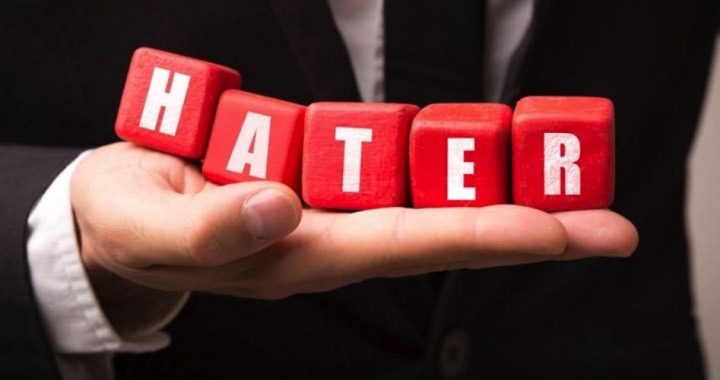
Podcast: Play in new window | Download ()
Subscribe: Android | RSS | More
“Hate crimes reportedly jumped by 226 percent in counties that hosted Trump campaign rallies,” blared a March Vox headline. “Counties that hosted a 2016 Trump rally saw a 226 percent increase in hate crimes,” declared the Washington Post. Other media outlets followed suit.
The source for this claim was a single, unpublished study by three professors from Texas A&M University and the University of North Texas. The academics compared the number of hate crimes — which they defined as “white supremacist propaganda, anti-Semitic incidents, and extremist behaviors” — in U.S. counties where Donald Trump held campaign rallies to the number of such crimes in counties where Trump did not hold rallies. Their conclusion: “Counties which hosted a Trump rally saw a 226% increase in hate-motivated incidents.”
Democratic politicians were only too happy to trumpet the study’s results as evidence of Trump’s alleged racism — and, by extension, their own moral superiority. On Facebook, Senator Bernie Sanders (I-Vt.) remarked, “Mr. President: stop your racist, hateful and anti-immigrant rhetoric. Your language creates a climate which emboldens violent extremists.” Representative Ilhan Omar (D-Minn.) tweeted, “Your rhetoric is directly and indirectly inciting hate, Mr. President.”
There’s just one problem with their take on the study: The study is based on such an obviously faulty methodology that two Harvard University Ph.D. students were able to debunk it quite easily — and show that the same methodology could be used to “prove” that Hillary Clinton rallies also caused hate-crime spikes.
The students, Matthew Lilley and Brian Wheaton, first duplicated the original study and arrived at the same conclusion: Counties with Trump rallies did indeed experience a significant increase in the number of hate crimes. Then they put data for counties where Clinton held rallies through the same analysis. “The ostensible finding: Clinton rallies contribute to an even greater increase in hate incidents than Trump rallies,” they wrote in Reason.
The researchers of the original study argued that “Trump’s rhetoric and rallies served to heighten white identity and increase the perceived threat facing white Americans,” thereby leading to more hate crimes. But if Clinton’s rallies could be linked to even more hate crimes, what then would one conclude? “Did calling millions of Americans ‘deplorables’ promote violence?” asked Lilley and Wheaton.
While it’s certainly tempting for Clinton’s detractors to buy into that reasoning, they would be making the same mistake as Trump’s opponents did in accepting the first study’s conclusion, explained Lilley and Wheaton:
Both of these results rely on comparing counties with rallies to other counties without them. This produces a glaring problem. Politicians tend to hold political rallies near where large numbers of people live. And in places with more people, the raw number of crimes is generally mechanically higher. Simply put, no one should be surprised that Orange County, California (population 3.19 million) was home to both more reported hate incidents (5) and Trump rallies (2) than Orange County, Indiana (population 19,840, which had zero of each).
Nor is it sensible to interpret that one of these differences (hate crimes) is caused by the other (political rallies). Indeed, adding a simple statistical control for county population to the original analysis causes the estimated effect of Trump rallies on reported hate incidents to become statistically indistinguishable from zero.
In short, the original study was completely off-base, yet it became a major news story. Why?
Lilley and Wheaton argue, quite convincingly, that it all comes down to “confirmation bias.” That is, both academics and journalists are overwhelmingly liberal Democrats, so they tend to believe studies that purportedly prove negative things about Republicans. The original study’s authors were clearly biased against Trump, and thus it was difficult for them to see the errors in their methodology — errors that probably would have been caught during peer review. Journalists, meanwhile, accepted the unpublished study at face value despite its glaring flaws because it seemed to confirm what they already believed.
“Many of Trump’s fiercest critics have proclaimed themselves to be staunch defenders of science in the face of a supposedly rising tide of anti-scientific sentiment,” observed Lilley and Wheaton. “By rushing to promote academic results that are most in line with their own preconceived notions, Trump’s critics risk committing the very error they decry.”
Photo: Ildo Frazao / iStock / Getty Images Plus



